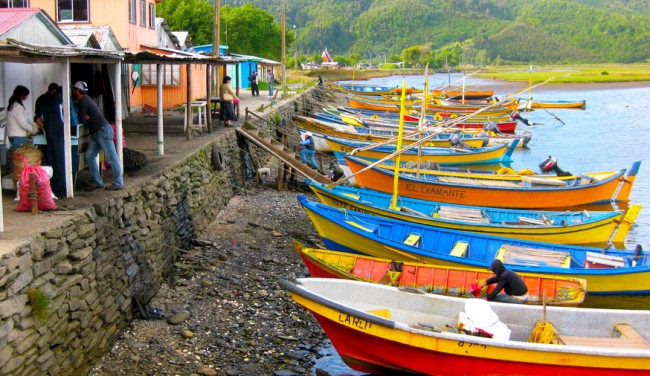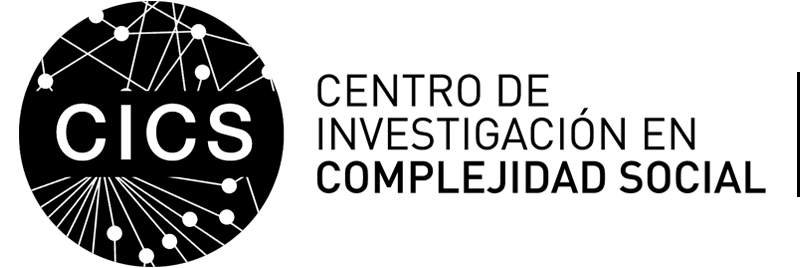CICS research contributes to the sustainability of socioeconomic systems
Wednesday, 17 October, 2012 | CALENDAR, EVENTS, NEWS
On October 26, Carlos Rodriguez-Sickert (member of CICS) will present the article “External validity of common pool resources experiments: Lessons from co-managed artisanal benthic fisheries in Chile” at the weekly seminar of the Instituto de Economía of Pontificia Universidad Católica. The paper co-authored with the researchers Stefan Gelcich, Ricardo Andrés Guzmán (CICS), Juan Camilo Cardenas and Juan Carlos Castilla, focuses on artisanal fishers who exploit benthic resources (mainly of mollusk called “loco”) along the coast of Chile. The article presents results of a common-pool-resource laboratory experiment and gives evidence of its external validity, providing valuable lessons for the co-management and sustainability of an internationally recognized resource.
Where: Instituto de Economía, PUC
Hour: 12:00 hrs.
Paper: “External validity of common pool resources experiments: Lessons from co-managed artisanal benthic fisheries in Chile”.
Abstract: In this paper we report the results of a common-pool-resource laboratory experiment and provide evidence of its external validity. The experimental subjects were artisanal fishers who exploit benthic resources along the coast of Chile. Some subjects belonged to fisher unions that co-manage resources through territorial user right areas. Other subjects were nonunionized fishers, relegated to open-access sites. Cooperative behavior in the laboratory closely mirrored cooperative behavior in the field. The members of high-performance fisher unions were the most cooperative subjects in the laboratory, followed by the members of low-performance fisher unions. Nonunionized fishers, who barely cooperate with each other in real life, failed to cooperate in the laboratory experiments.
We also explored experimentally how weak external enforcement can trigger the internalization of an anti-poaching social norm. Only the members of high-performance fishers unions appeared to internalize the norm. These subjects continued to cooperate until the end of the game, against the predictions of game theory.
Our experimental results provide valuable lessons for the co-management of artisanal fisheries. The beliefs, attitudes, and values of community members are altered in non-trivial ways by changes in the institutional framework. This affects the outcomes of co management policies and may be decisive in its success or failure.
El 26 de octubre Carlos Rodríguez-Sickert, miembro del CICS, presentará en el Seminario Semanal del Instituto de Economía de la Pontificia Universidad Católica, el artículo “External validity of common pool resources experiments: Lessons from co-managed artisanal benthic fisheries in Chile”. El paper escrito en coautoría con los investigadores Stefan Gelcich, Ricardo Andrés Guzmán(CICS), Juan Camilo Cárdenas y Juan Carlos Castilla, se enfoca en la explotación de los recursos betónicos, principalmente del molusco denominado loco, por parte de comunidades de pescadores artesanales en las costas de Chile. El artículo presenta resultados de experimentos de laboratorio de comportamiento colaborativo y provee evidencia para su validación en el mundo real, brindando así lecciones valiosas para la co-administración y sustentabilidad de un recurso reconocido internacionalmente.
Lugar: Instituto de Economía, PUC
Hora: 12:00 hrs.
Paper: “External validity of common pool resources experiments: Lessons from co-managed artisanal benthic fisheries in Chile”.
Abstract: In this paper we report the results of a common-pool-resource laboratory experiment and provide evidence of its external validity. The experimental subjects were artisanal fishers who exploit benthic resources along the coast of Chile. Some subjects belonged to fisher unions that co-manage resources through territorial user right areas. Other subjects were nonunionized fishers, relegated to open-access sites. Cooperative behavior in the laboratory closely mirrored cooperative behavior in the field. The members of high-performance fisher unions were the most cooperative subjects in the laboratory, followed by the members of low-performance fisher unions. Nonunionized fishers, who barely cooperate with each other in real life, failed to cooperate in the laboratory experiments.
We also explored experimentally how weak external enforcement can trigger the internalization of an anti-poaching social norm. Only the members of high-performance fishers unions appeared to internalize the norm. These subjects continued to cooperate until the end of the game, against the predictions of game theory.
Our experimental results provide valuable lessons for the co-management of artisanal fisheries. The beliefs, attitudes, and values of community members are altered in non-trivial ways by changes in the institutional framework. This affects the outcomes of co management policies and may be decisive in its success or failure.


